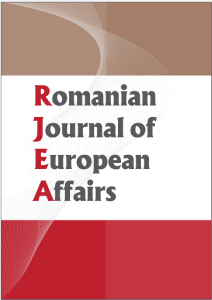The Entire World’s a Stage: the EU’s Strategic Presence in the Contemporary International Arena
Scott Nicholas Romaniuk
Abstract:
In the last ten years, an exceptional and diverse series of impacting events—international terrorism, violent conflict situations, war, environmental and natural crises, coups, assassinations and international disputes and challenges—have unfolded. As higher expectations of international bodies in responding to emerging challenges within the international system continue to surface, the shifting structures of actors that deal with those challenges can be readily observed. With the global conflict map undergoing strident change, the focus of strategic analysts is shifting to the global role of the European Union (EU). The EU is seen, more than ever, as a viable and legitimate player that can appropriately respond to existing and anticipated crises in a coherent and coordinated manner, particularly with the application of military force. This article addresses the shifting power structures of the EU as it becomes oriented toward a more unique role that utilizes a ‘soft-hard’ power duality, and current challenges to EU security. It addresses the emerging role of the EU as an international player and examines several cases of EU intervention in distant theatres of operation.
Keywords: Common Foreign and Security Policy (CFSP), European Security Strategy (ESS), militarization, ‘Normative Power Europe, ’ ‘Civilian Power Europe’
The Strategic Character of the Cooperation Relationship Between the EU and the BRIC Countries
Iulia Monica Oehler-Şincai
Abstract:
Brazil, the Russian Federation, India and China (coined under the acronym BRIC at the end of 2001) are alongside the United States of America (USA), Canada, Japan, Mexico and South Africa the strategic partners of the European Union (EU). Although the relationships between the EU and each of the four largest emerging economies in the world have a common backbone – the bilateral trade and investment flows – each one bears its own particularities. In this article, our purpose is to explore the strategic partnerships between the EU and the BRIC countries with emphasis on the economic pillar of the EU-BRIC cooperation framework. In our investigation, we will start with the analysis of the “BRIC mechanism”, continue with a short presentation of the particularities of the individual relationships between the EU and each BRIC country, and conclude with emphasising the EU role in the process of modernization of these economies.
Keywords: BRIC, emerging economies, EU-27, strategic partnership, trade and investment flows
Regionalization in the Black Sea Area: a Comparative Study
Diana Rusu
Abstract:
The post-Cold War period in Europe was favourable for the development of new regionalization projects which surrounded the EU. The Baltic Sea, the Mediterranean Sea and the Black Sea became the centre of new European sub-regions. Each project stands out now through a certain image that it received mirroring its type and level of regionalization emerged at the junction of regional dynamics and external influences. While the Nordic region is addressed as a model of multi-level, locally driven cooperation, the Mediterranean region is embedded in the North- South developmental division approach with little cooperation and strong external influences. The Black Sea’s position is debated between the two models mentioned above. Thus, I propose a comparative analysis of these three cases aiming to trace down the similarities and differences between them with the focus on the Black Sea Region. The conclusion of the study places the Black Sea Region in between the cases with a genuine potential to follow the Nordic model but with its future evolution hanging on the EU’s policies toward the area.
Keywords: Black Sea Region, comparative study, Danube region, European Union, regionalization
Immigrants in Spain – Their Role in the Economy and the Effects of the Crisis
Andrea Éltető
Abstract:
In the last decade Spain definitely became a country of immigrants. This article describes the characteristics and economic role of immigration, the official policy towards the phenomenon and the effects of the financial and economic crisis of the last two years. The five million immigrants had important effect on the Spanish demography, employment and education system. Foreigners found vacant jobs first of all in the construction industry and agriculture. To the end of 2007 however, the construction boom ended and Spain sank into a deep recession. Unemployment rate jumped to 20 percent to the spring of 2010 leaving mass of immigrants without jobs. Tolerance of the Spanish people towards immigrants seems to decrease and foreigners has become another problem for the – otherwise overloaded government.
Keywords: crisis, employment, immigrants, immigration policy, Spain
Book Review: Eleanor Spaventa, Free Movement of Persons in the European Union: Barriers to Movement in Their Constitutional Context
Irina Pescăraşu
Abstract:
The book analyses the evolution of the principle of free movement and places a special emphasis on the notion of boundaries that limit such freedom. The primary purpose of the investigation is to assess whether a satisfying concept and legal explanation may be provided for the broad interpretation given by the European Court of Justice in matters of free movement with respect to the provisions of the Treaty establishing the European Community. The author insists on the emergence of a new constitutional dimension in which Member States have considerable responsibilities to the citizens of the Union, as citizens rather than mere economic actors. Relevant aspects such as: the processing of the term of discrimination, the notion of non-discriminatory barrier, non-discriminatory barriers to the right of residence and free circulation of workers, the shortcomings of the access to the market are also included in the book.
Turkey Entering the European Union Through the Balkan Doors: in the Style of a Great Power?
Bedrudin Brljavac
Abstract:
Confronting an increasing EU opposition from a number of influential member states to its membership the AKP government adopted a multilateral approach to its foreign policy making resulting in dynamic economic and diplomatic policies with the countries from Asia, Africa, Latin America, and the Balkans region. In this article we analyzed the effects and consequences of a paradigmatic shift in Turkish foreign policy in the Western Balkans in relation to the country’s EU membership prospects. Through its pro-active economic and diplomatic initiatives in the region Turkey has been proving itself as indispensable country for the European Union membership. Thus, if the Turkish government concentrates more on solving its internal problems and continues its pro-active diplomacy in Western Balkans, among other regions, it could become not only a regional but also a global power.
Keywords: European Union, Foreign Policy, Great power, Soft Power, Turkey, Western Balkans
Book Review: Thomas Risse, A Community of Europeans? Transnational Identities and Public Spheres
Scott Nicholas Romaniuk
Abstract:
This book represents a multi-faceted and multi-dimensional exploration of Europe as an institutional and social conception. It systematically links understanding of the Europeanization of identities and public spheres with citizenship, nationalism, community and communication, EU (European Union) enlargement, institution-building, and European democracy and politicization. As a hallmark of insightful and dynamic scholarship, Risse’s work draws inspiration from a variety of societal levels, including some of the most critical players in European political life today, and highly-praised and well-known political philosophers, and policymakers.






